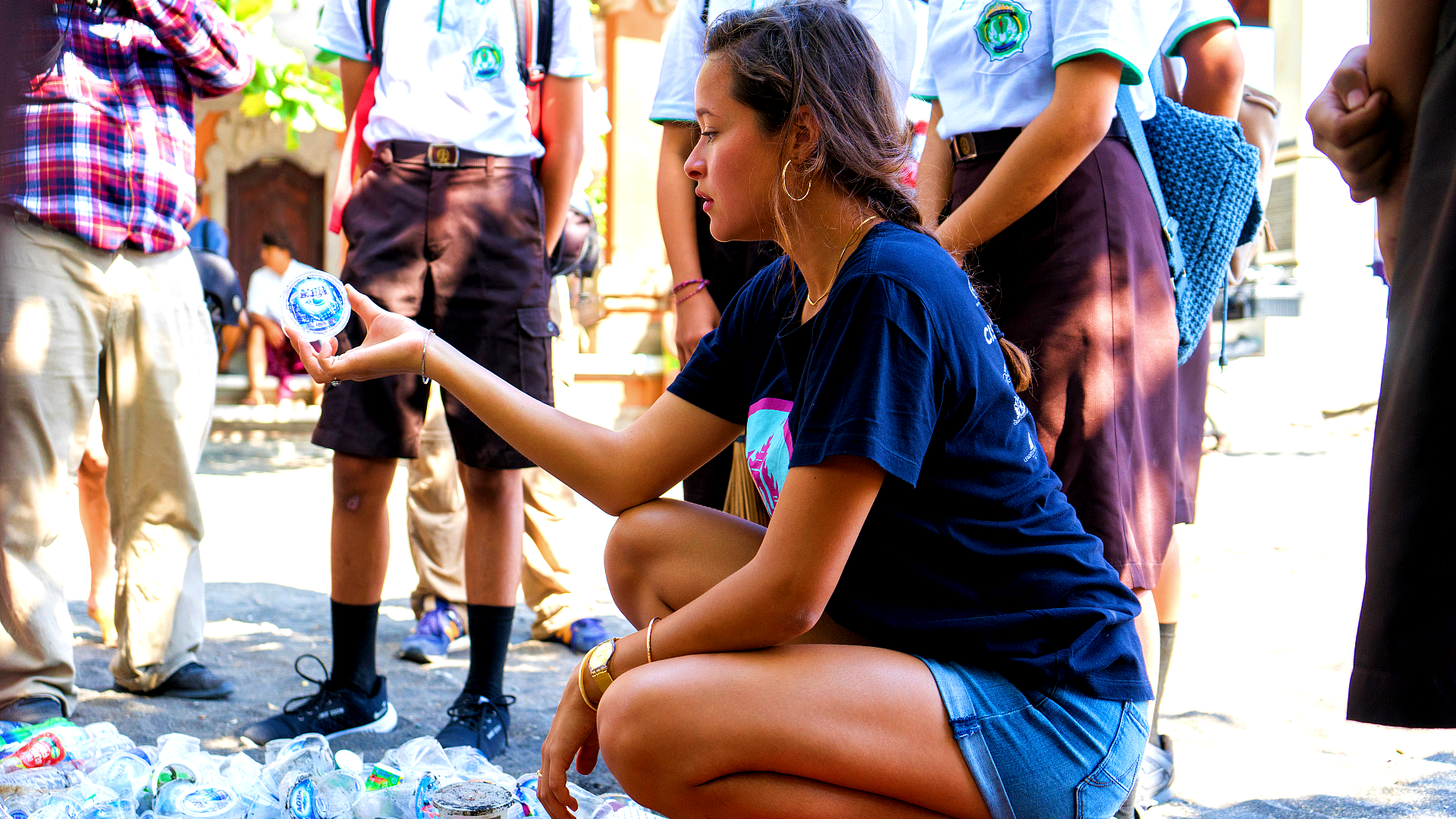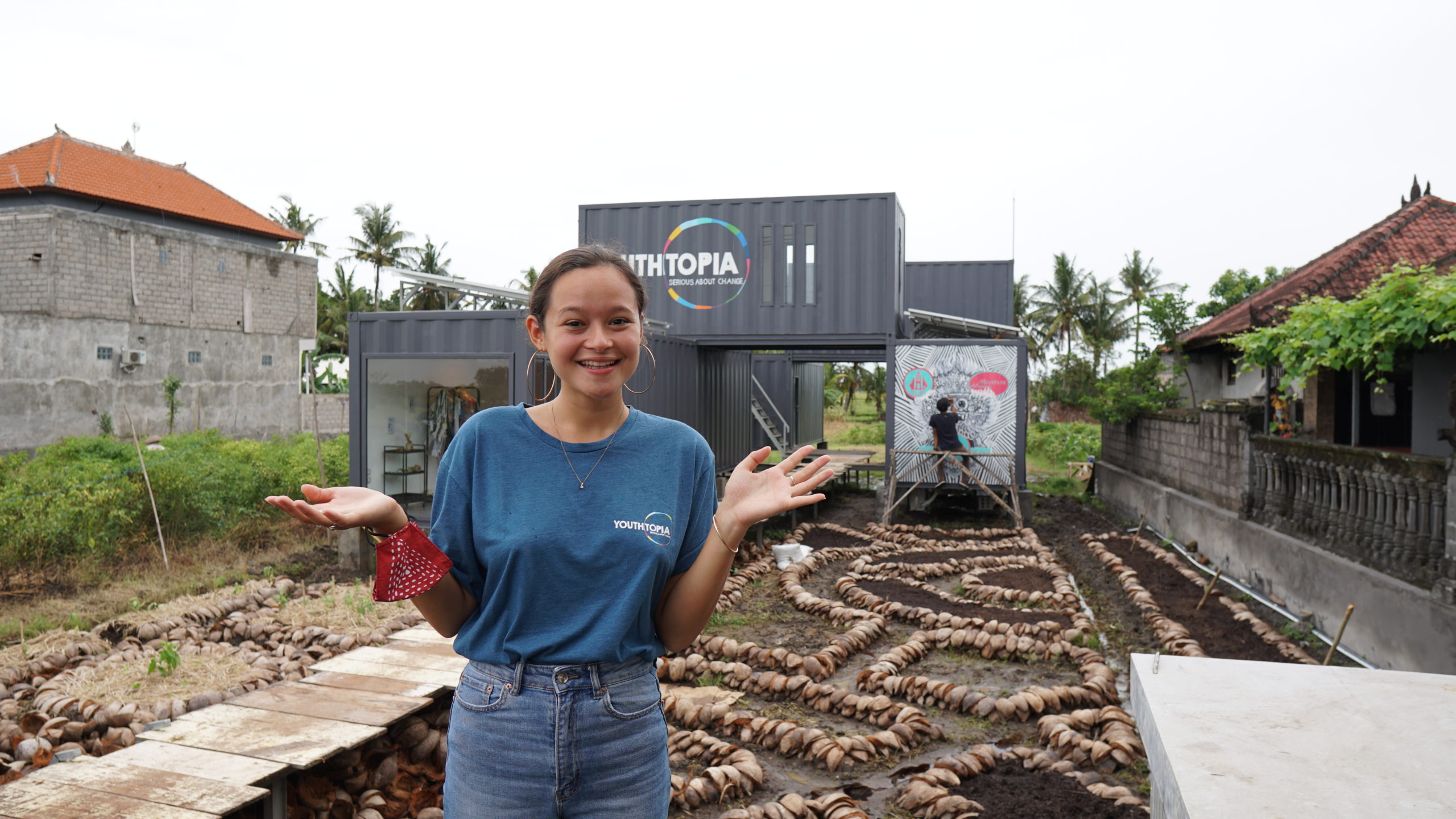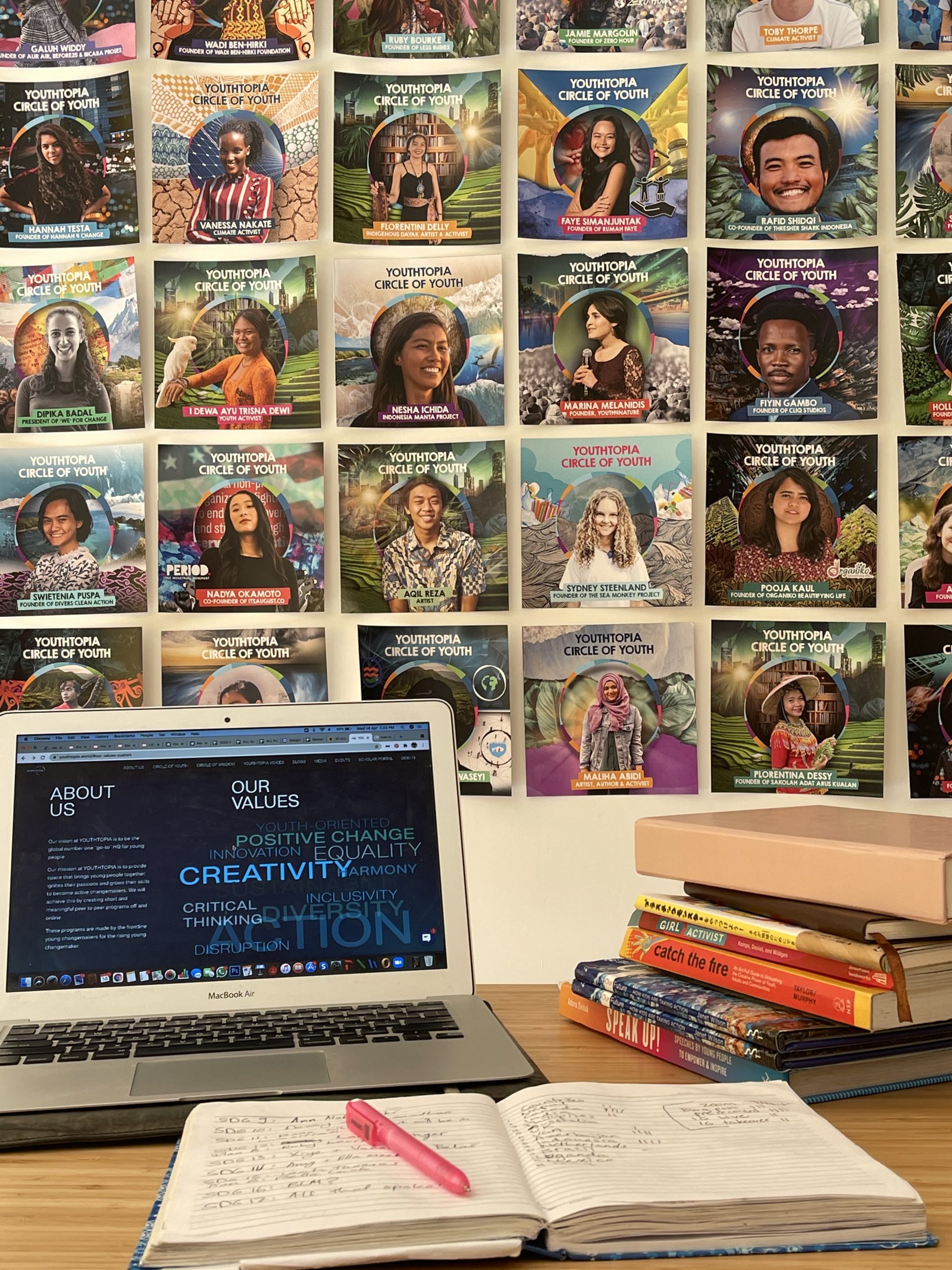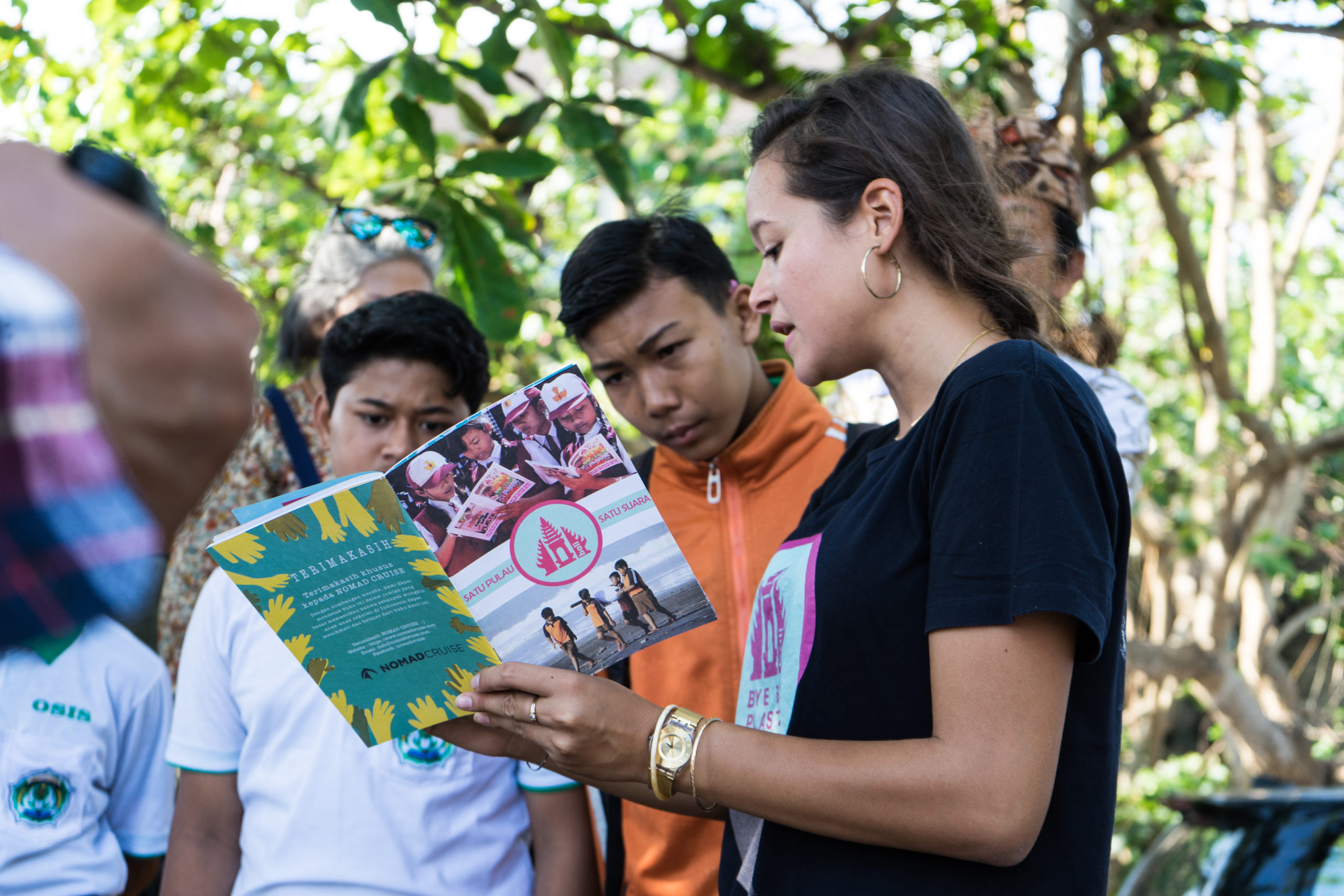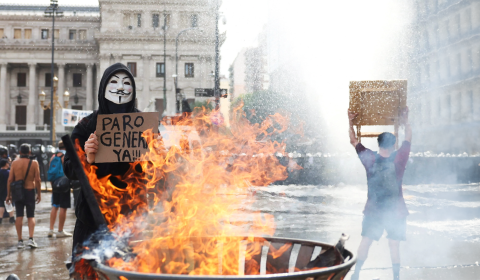The self-proclaimed ‘full-time changemaker’ is part of a growing phalanx of Gen Zers determined to shape our planet’s future. I sat down with this pioneering environmental activist to discuss the importance of empowering young people to step up, rather than shut down, against the climate crisis.
‘Us kids may only be 25% of the population, but we are 100% of the future.’
These are the words of Melati Wijsen, an environmental activist who, at age 20, has already taken more strides towards safeguarding the future of our planet than the majority of us can say we have in our whole lives.
In 2013, Melati and her sister Isabel founded Bye Bye Plastic Bags, a movement that quickly became a global youth-driven sensation for its success in convincing Bali’s governor to ban single-use bags, straws, and styrofoam across the island.

Born and raised there, Melati tells me that her dedication to protecting the environment stems from a strong connection to her natural surroundings developed during childhood, and that ‘it wasn’t rocket science’ to understand the hugely damaging impact of human life on her home.
‘The decision to dedicate myself to this cause was easy,’ she explains. ‘Seeing so much plastic pollution made me want to do something about it. There was no escaping it, it was simply everywhere.’
Just 12 at the time, Melati refused to wait until she grew up to start making a difference, trusting in her passion and pure intentions to bring about change.
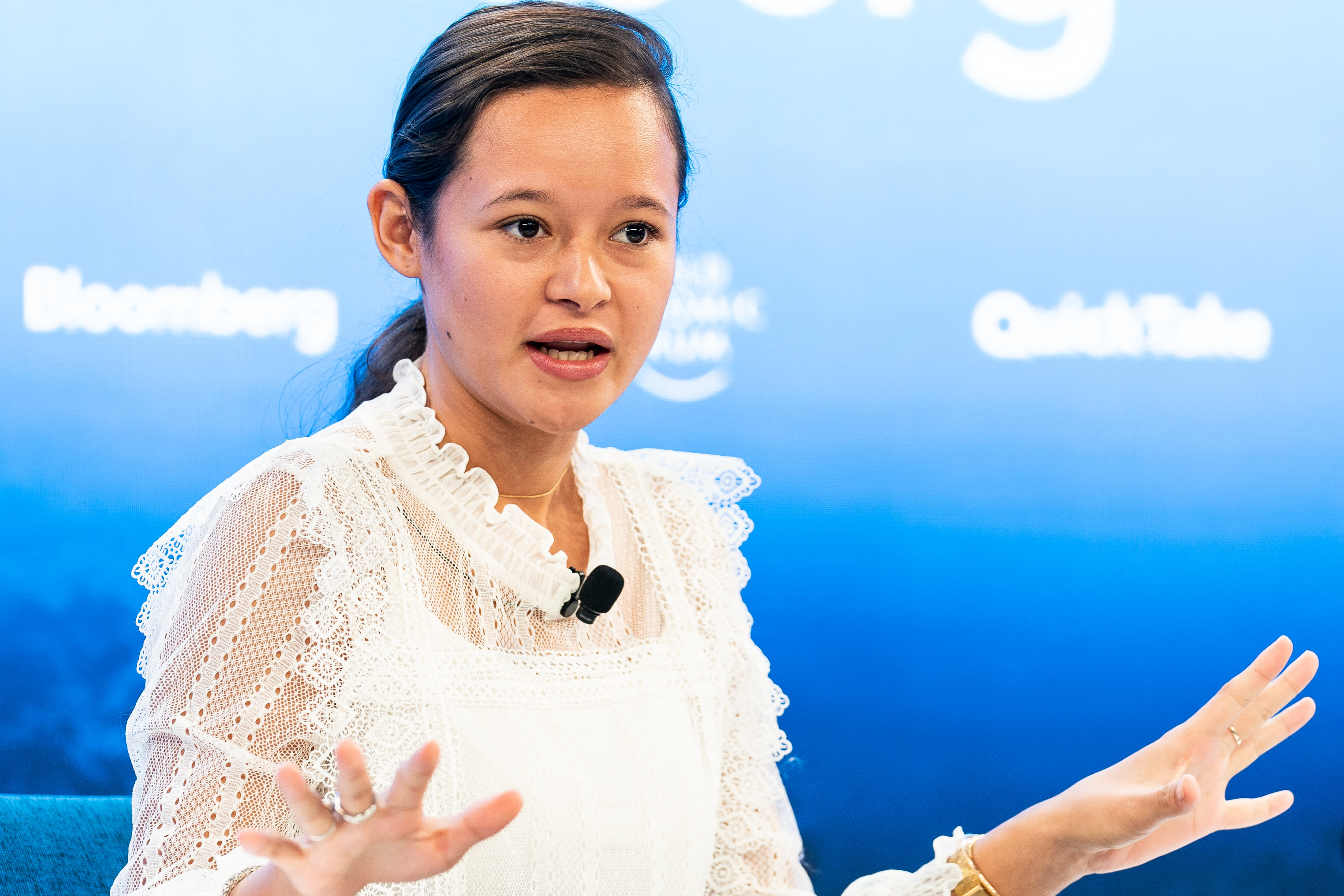
‘I had a voice, I believed in something and that is all that mattered,’ she adds.
This mindset is one echoed by her demographic. Gen Z is the first to experience the repercussions of the climate crisis up close and isn’t motivated by ego, money, or a political agenda, but instead an innate sense of responsibility that it’s their duty to do the right thing. After all, there is no Planet B.
‘We’re at the most important tipping point in history and we do not have the luxury of time,’ she says. ‘As young changemakers we really embody this. It’s an everyday battle to challenge the comfort of the status quo, but we’re continuously there on the front lines doing what we can.’
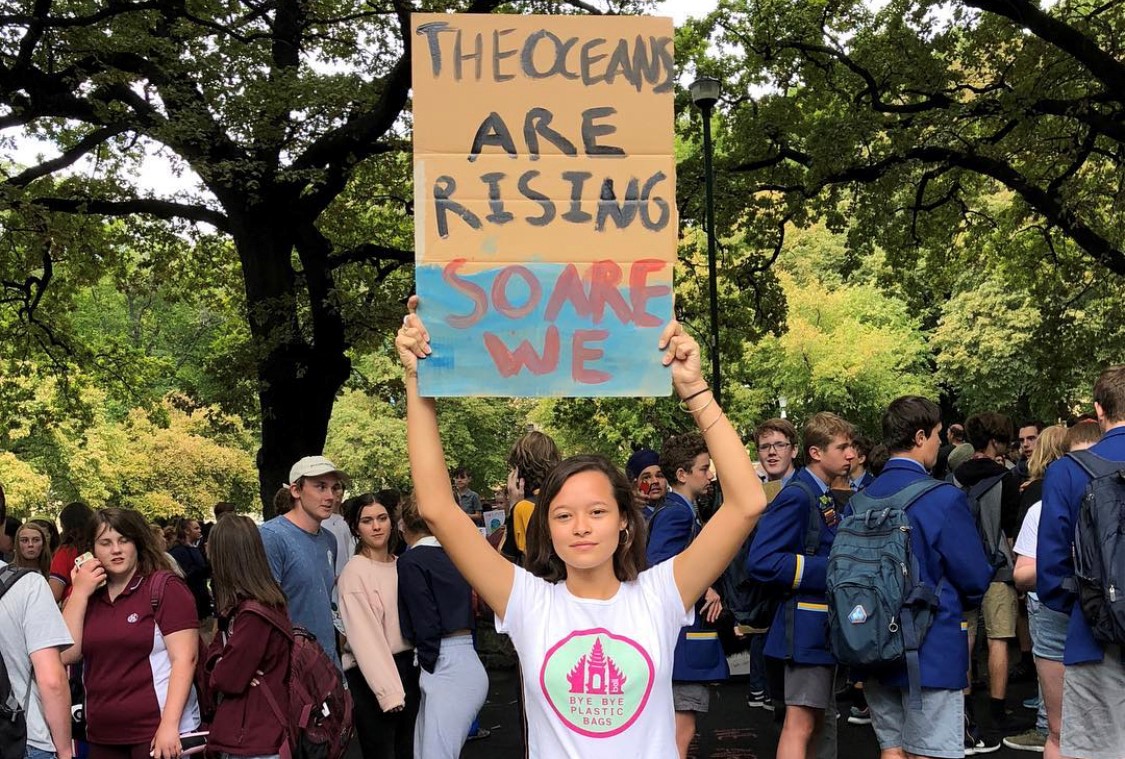
It’s this unrelenting ambition and faith in her generation that’s carried Melati into adulthood, shaping her into the ‘full-time changemaker’ she describes herself as today. And, while she may be young in years, Melati is a poised and practiced speaker who has captured the attention of world leaders at international conferences and inspired millions with her Ted Talks.
Throughout her activism journey – from project to mission to life’s work – she has remained firm in her vision that young people have a responsibility to ensure they’re pushing for tidal change and a future they want to be a part of.
‘Instead of asking “if” the change is going to happen, we must ask “when” it will happen,’ she says. ‘The technologies, the innovation, the bright minds are here, it is just about connecting the dots – I believe that today’s youth can do that.’
However, galvanising them to act often has its complications, namely because (as Melati puts it) genuine change takes place in the classroom and the current education system is, in her opinion, considerably outdated.
After almost eight years of public speaking with students her primary audience, Melati tells me that the number one question she is still asked, regardless of where she is, is ‘how can I do what you do?’
There’s no denying that her resilience to save the Earth has been there from day one, defined by a conviction that if you ‘stand for something that’s bigger than you, part of a wider mission,’ there’s no telling what you can’t achieve.









